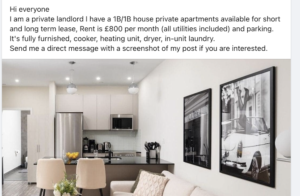Blogger outreach and social media is my job.
I’d like to pretend it’s all very clever and complicated, but 90% of what I do is just common sense – it’s introducing companies with something to say to people who might like to talk about that thing on social media. There’s (hopefully) a bit of creativity in making the message authentic and creative, and some science in measuring and analysing the coverage, but at its heart, what we do is spark conversations.
And yet, like all the simplest things in the world, there are a thousand ways to get it wrong.
Of course there are things bloggers get wrong, and I’m as guilty as the next blogger of occasionally putting my foot in it. But I thought it might be helpful for my PR readers to share some of my tips on better blog outreach (from a blogger’s perspective), based on my own observations over the last year.
Lots of these issues have been covered more times than White Christmas, but it’s December, and what’s more festive than a round-up when you’re a bit short on ideas and you’d really rather be eating mince pies?
- Have a sense of humour. This might be your job but (most of the time) blogging is our hobby. First and foremost, above anything else, this stuff should be fun.
- Remember that a typical parent blogger’s priorities look something like this: kids, partner, job, finances, friends, house, how to take over the world, blogging, Twitter, Jaffa Cakes, everything else, your client. Things happen. Parent bloggers won’t turn up to an event if their child is sick, or their boss demands their presence. Estimate that 30% of bloggers won’t show on any given day, and you won’t go far wrong. But buy extra cake just in case, because the ONE day you don’t, they’ll all turn up.
- You can put together the best pitch in the world, but trust me, nothing makes a blogger like you more than the three Cs: Comment on their posts and Tweets; Call them by name and if in doubt, send them Chocolate.
- Most of the other bloggers I work with are earning money from their blogs. So don’t be too surprised if a blogger expects to be paid for promoting your client on their sites. There’s an inverse relationship between how much fun something is, and how much a blogger may charge you to write about it.
- Parents come in two genders. Smart PR execs know that “Mum” and “Parent” are not actually synonyms. They know that men aren’t the only people who are interested in cars, cameras and stereo equipment. And they know that while we all deserve a treat, just because someone has breasts doesn’t mean they are only interested in cake, chocolate and spa days (nice as those things are).
- Blogs are a personal thing. And I’ve never seen a brand go far wrong with something that’s personalised to the bloggers they pitch. Whether it’s a dressing gown embroidered with your blog name, a product label with someone’s name on it, or a personalised YouTube invitation to an event, people respond better to the personal touch. And we love to show off on Instagram *looks guilty*
- Competitions and challenges are a great way to engage with bloggers, but they’re even better if the brand is seen to be sensitive and scrupulously fair. If you urge specific bloggers to take part, they’ll quite reasonably expect to win. Contacting people who haven’t won to say thanks for their support, before announcing the winners publicly, goes a long way to easing people’s disappointment. And it’s even nicer if you can find a way to acknowledge the contribution of all the bloggers who take part in these sorts of activities – whether it’s a Pinterest board, YouTube playlist, or just a simple “thank you” Tweet.
- Be diplomatic. Sometimes a brand’s priorities shift – you want to work with men, not women. You want to work with ABs not CDEs. Don’t tell a blogger if they have just moved into the “not a desirable target” category. Especially not using those exact words. You’re potentially talking about a site that is a family’s very personal story. It means a lot to someone. Dismiss it as “not a priority” or “not of sufficient quality” and you might as well have just punched their kitten in the face.
- Clean your mailing lists. Your exclusive invite looks less exclusive when we get it four times, and it’s clear it’s going to everyone in your address book. Blogs are personal, people are different, and the same pitch is unlikely to be relevant to 800 people. Target. Tailor. Take time.
- Offer to send me biscuits. I’d like to pretend, as a pro blogger, I’m above such tactics, but honestly, offering me biscuits is about a million times more effective than saying “I loved your post about [insert recent post title]”
- Don’t assume that replicating a blogger’s content on your client’s site is a compliment. Replicating any content, whether it’s a recipe written by a food blog or a makeover from a home and interiors blog, will often be seen as copyright theft – do ask for permission first and consider whether you can pay the blogger for the right to use their content, or whether you can publish an excerpt, with a link back to the full post on their blog.
- Use common sense. Parent bloggers have kids. Campaigns that don’t acknowledge this are going to struggle. Don’t ask a parenting site to review a kid-free holiday. Don’t ask a food blogger to review take-away food. It happens way more than you’d think.
- I’d advise against telling a blogger that an activity isn’t going ahead if what you mean is, “It’s going ahead without you.” Bloggers are an incredibly chatty bunch, and word will get back to the blogger that didn’t make the cut.
- Don’t try and keep up with blogger spats. There’s a new one every week and they usually blow over in 24 hours. That’s just what happens when you work with a community of passionate, articulate and opinionated people.
- Do the basic research before sending out a list to a generic “food” or “parenting” list. As a Mum to an 8-year-old, my only thought about nappies is, “Thank God that’s over.”
- Learn about SEO, paid links, sponsored posts and Google’s terms and conditions – even if you’re not an SEO professional. Bloggers like to make informed choices about the content they put on their sites and getting halfway through a campaign and being asked if I could “just pop a follow link” onto the post about a product you’ve already sent me is pretty frustrating.
- Don’t under-estimate how much bloggers understand about this stuff. Don’t be the brand that asked me to review something, add a keyword link to their website and not mention that they’d sent me the product because “we really want the post to be about you, and your child, and not about us.” It’s just embarrassing.
- Be generous with links, Tweets and credits. From time to time, I see brands invite bloggers to guest post on a corner of their website in exchange for a link back to their site – only the link is no-follow, so the blogger will see little benefit of it. Honestly? It looks a bit mean. A great brand/blog relationship delivers value both ways, and a link, Tweet or a mention on your client’s Facebook page shouldn’t be too much to ask if I’ve volunteered my time to support your client’s campaign.
- Don’t stalk bloggers. We understand that brands have deadlines and want coverage – if this applies, then let the blogger know upfront: “If you take this product, we’d need the review by X. Is that okay with you?” But sending a product and then emailing and Tweeting daily to chase coverage quickly gets annoying, especially when bloggers are fitting this stuff in around their job, family, and other commitments.
- Don’t send bloggers press releases. I don’t know many bloggers who publish press releases, for free, on their site. They might love to hear about new products, but there are better ways of doing that than a release – create a board on Polyvore or Pinterest, offer to send out a sample from a list of new products, create a YouTube video demonstrating an amazing new product. Host a Hangout live from your new season press show. Handpick five new items from the collection you think your chosen blogger will really love. Anything but a press release, basically.
I think a lot of these tips boil down to that social media cliche – being authentic. Bloggers understand you have a job to do, but if they’re going to write about your client, it needs to be creative, fun and rewarding for them. They want you to recognise them as individuals, and to talk to them as a person, not a publication, or a target. Be human. Laugh. Talk about X-Factor.
I’m lucky to have worked with loads of amazing brands and agencies on really fun, interesting campaigns in recent years, and even with one or two who sent biscuits. But blog outreach is still new to many PR execs and brands, and if that’s you, then I hope you find these tips helpful. If you work in PR or marketing, you might find our recent Benchmark Survey a useful source of further advice, and if you think I’ve missed something, then I’d love you to leave a comment.




